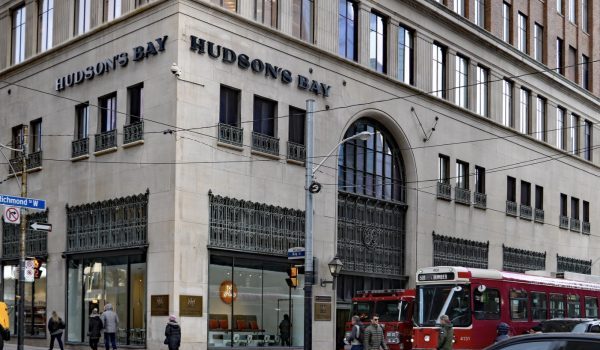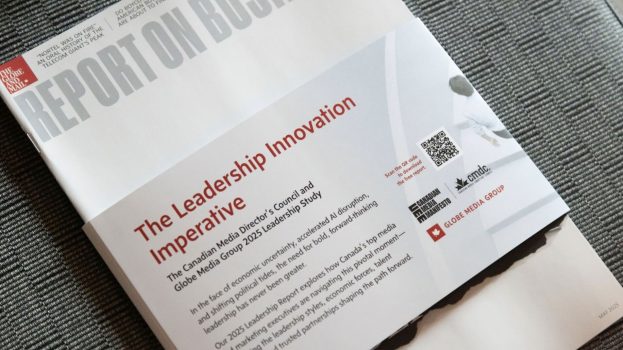Don’t get me wrong, I don’t want to be the new account executive. I just want to talk to the client directly about any strategic decisions and understand why we’re doing them.
I’ve spent 20 years in agency media departments and the last two in an independent media planning and buying company. Now that I work directly with my clients, I am passionate that media people need to have direct and ongoing access to their clients to be able to do the best job for them. I also know that with that responsibility comes the obligation to communicate those conversations to all other agency team members.
Most media people have client exposure, but it was always managed by AEs with much of the client information being communicated through them. I now realize that once you take the AE out of the picture, things move more smoothly, the clients get what they’re looking for more often and clients have a greater appreciation of the job we do for them.
The best analogy that I can think of is when you’re taking your car to the shop. Doesn’t it make more sense to talk to the mechanic directly since he’s the one who knows how your car works inside out? Sure, you can tell the manager about it, but will he get it right?
So let’s talk about the specific reasons why media professionals should work directly with clients:
The media budget comes first
In the case where a budget hasn’t been set, I have found that there’s no need to involve creative until we can get a handle on how much the media budget will buy. I’ve found that our clients pick up the phone and call us to work on a preliminary media plan. Once we know what is doable, we’ll bring the creative agency into the picture. This is a naturally efficient process that makes sense to the client.
Eliminating miscommunication
Too many times AEs are put in the position of communicating information that they don’t fully understand. When they don’t have the answer to media’s question, it’s too easy to ‘fill in the blank’ for us in a knowledgeable-sounding way with what they think the client thinks.
The obvious check list of target audience, markets, etc. is fairly straightforward, but there’s always more information needed to fully understand each strategic decision. It may sound silly, but I want to hear the client’s tone of voice, see the body language and ask lots of questions. That is best done by working directly with the client.
Direct communication is faster
It’s pretty obvious that direct communication is faster. Also, if media were working more closely with clients, fewer errors would occur because we would be there to point out what can and can’t be done. I’ll never forget the time I was given a magazine creative unit that didn’t exist to place in several titles. I only got one magazine to take the unit, but had media been involved with the communications earlier, it wouldn’t have happened.
Media people have the skills to manage themselves
Media people should self-manage their own media process directly with clients because they have an analytical, deadline-oriented, no-nonsense approach to getting the work done.
To survive in media, you really need to be pretty organized and thrive under a heavy workload. The nature of our job is very information intensive, and we are used to ongoing justification because of the dollars involved.
It’s tougher for the creative department to manage itself because the nature of creative is limitless, emotional and rooted in play. Account executives need to keep the client happy and sometimes that compromises the work. Media is based on a combination of facts, judgment and the bottom line. I would say that our skill set make us perfect to manage our own processes with clients directly.
Media people are less affected by the ‘agency agenda’
I’m going to have hell to pay, but I’m going to say it: If we didn’t have thorough, well-researched media plans, all advertising would be in television. I don’t think I’ve ever worked for an agency that didn’t want to do lots of television creative.
With that said, believe it or not, I’m actually a big supporter of television. I know it works. But I also know that is doesn’t work for every client and that’s why media should work directly with clients. We provide a more objective viewpoint, one that is in the client’s interest, not the agency’s.
Getting a little respect
How can we expect to get paid what our work is worth if the client thinks it doesn’t cost them anything? In new business discussions I’ve even heard talk of ‘throwing the media planning in for free.’ It may be a nifty sales technique, but it completely devalues the media product.
Since most costs historically were covered in a portion of the commission or retainer, the cost of media’s time is pretty invisible to the client. When clients work directly with media, they better understand the time, energy and resources used to get the job done. Media then has value and clients want to make sure we have a reasonable level of compensation.
I am passionate about media professionals working directly with clients. If you think about it, at some point a conversation about the media plan has to be had, so why not have it with the media person? It may take a little more time, but 80% of your advertising budget is worth it.
Laurie Greene is general manager at San Francisco-based media agency Round 2. Despite working at a smaller independent media company, she was selected as a 2001 Mediaweek Media All-Star in the Planning category. She can be reached at: LGreene@round2.com.























